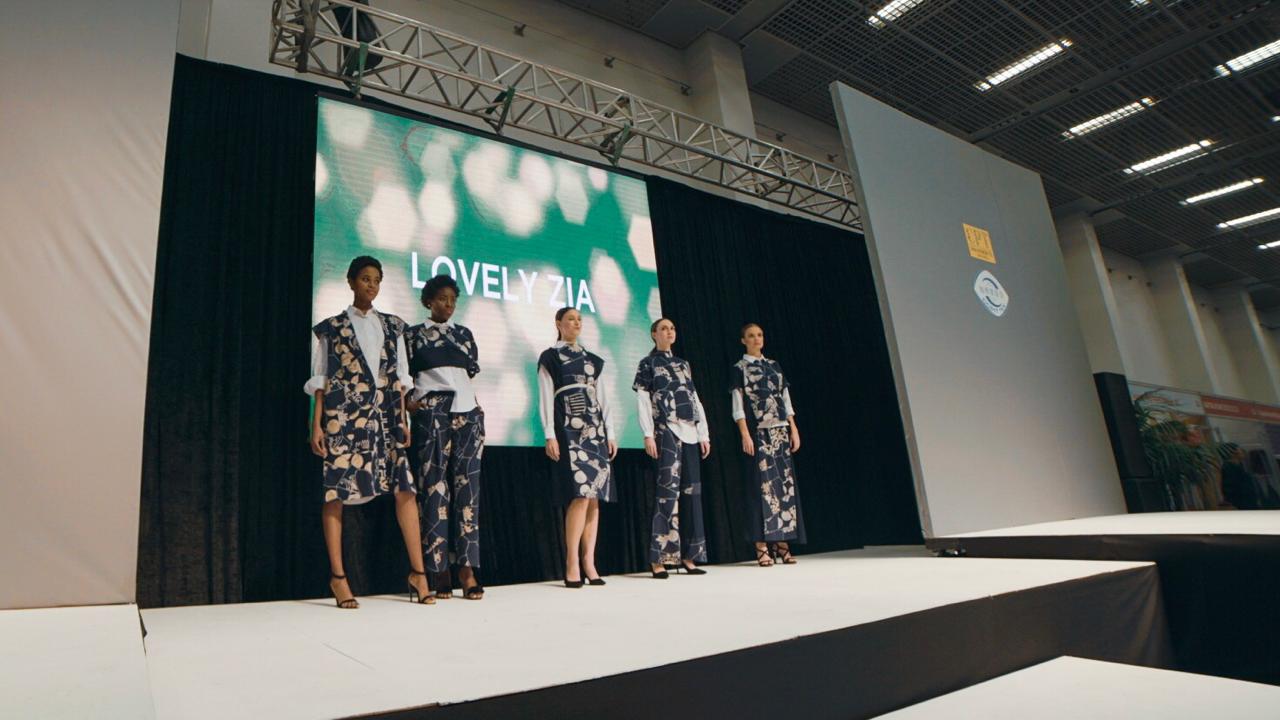As part of ANGIN, Connector.ID team member Candice Li interviewed Hayati Fauziyah. Candice is a Business Development Associate at Connector.ID, spending her summer with ANGIN.
One of Connector.ID’s main missions, as supported by UNDP, is to contribute to the Sustainable Development Goals (SDGs) by promoting access to financial services, and by promoting enterprises to incorporate SDGs into their businesses. In the spirits of this, we decided to interview people whose role aligns with these values. By sharing their journey in impact, we hope to raise awareness of the field and inspire more people to join the movement.
Zia is an entrepreneur I met by chance at the TPSA event. When we were chatting, she has just come back from exhibition from South Africa. As I learned more about her story as a female entrepreneur, I grew more and more impressed. When the opportunity came up to interview an impact entrepreneur, Zia’s name immediately popped into my head. Zia started to tell her story immediately after I asked a couple of questions regarding her business.
Please introduce yourself
My name is Zia, originally from Bundung, indonesia. After I graduated from the Communications faculty and run a fashion business selling contemporary batik clothing. It has been 8 years since I started my own business.
Very interesting that you have a communications background! Why did you decide to start your own business?
I never thought I would start my own business. When I was young, I loved to make beautiful clothes. I enjoy dolling up my dolls, cutting up my mom’s shirts. That’s when everything started. And the passion has kept me going ever since.
Right after college, I worked as a radio announcer and a host for local TV station. When I discovered that my true passion is with clothes, I quit my job. Now although I no longer have time for radio because I don’t have time.
What is running your own business like?
The batik I sell is all handmade. I have an artist to draw patterns according to a given theme, and then a team of people to make the fabric from the drawing. Afterwards, I myself design all the clothes. When the fabric is ready, there is another team to turn these fabrics into ready-to-wear clothes.
My target audience is middle upper class women who love batik. I travel a lot to Jakarta to sell to retail, and I sell my clothes at 2 local boutiques. I also travel all over the world to exhibition to sell as well. I just traveled to Cape Town for an exhibition, hoping to bring the beautiful batik onto the world stage. When you are trying to go global, it is important to find the right country to sell. For example, batik is very popular in South Africa because people know it as Mandela’s shirt. You have to make sure that the country can accept it.
Why did you decide to make batik?
Originally, I wanted to do something with muslim wear. But in Indonesia, where there is the biggest Muslim population, there is a lot of competition. So I wanted to do something different, but also Indonesian. That’s when I came up with the idea of making fashionable, contemporary batik. Back then, they used to be solely for the old, but now the design is very unique and up-to-date. The industry has been completely revolutionized; batik is now turned into high fashion.
Tell me about the role impact plays in your work?
As a woman entrepreneur myself, a big part of my work is dedicated to women empowerment.
I believe my work and social impact go hand in hand. I very much believe in sharing, especially when women are talking to each other, there is a lot of knowledge to be shared. I am actually the president of an online group called “Ibu ibu doyan bisnis”, which translates to moms who love business. Many members in the group are housewives, or stay-at-home moms. However, in the group, they are all supportive and entrepreneurial women who run their own businesses on the side while still doing house work. It is a way for women to prove that they are still “worth it”. I mainly facilitate knowledge sharing within the group. Now, the group has grown to have 28000 members worldwide.
What are some challenges that women face in the Indonesian startup ecosystem?
The first big one is the lack of knowledge. Sometimes these women are afraid to ask to act. They have many questions, but they are too embarrassed to ask. Another challenge that women face is the lack of confidence to start something. They also have to work with their family and their husband. Sometimes, women have to ask permission from their husbands, because they have to take care of the family first.
What resources have you found useful in navigating through the difficulties?
Knowledge is everything. You have to look for knowledge. Be it by watching YouTube or reading news, or sharing with other women. You just have to be really determined and take initiatives.
What advice do you have for entrepreneurs chasing their dreams?
Start from something you love. From there, keep at it, don’t stop, and grow from your own problems.
What was your biggest challenge in your business?
It is hard to stabilize the business, even when sales are slowing, because a lot of people’s livelihood depends on you.
As our ending question, what do you think of Connector.ID and how is it going to benefit the Indonesian entrepreneurial ecosystem?
The platform is great, and I’m sure it is gonna benefit the startup and the growing entreprises, with connecting people to easy access of capital.
Check out her business here: www.LovelyZia.com, @lovely_zia_
Visit Connector.ID at http://www.connector.id





